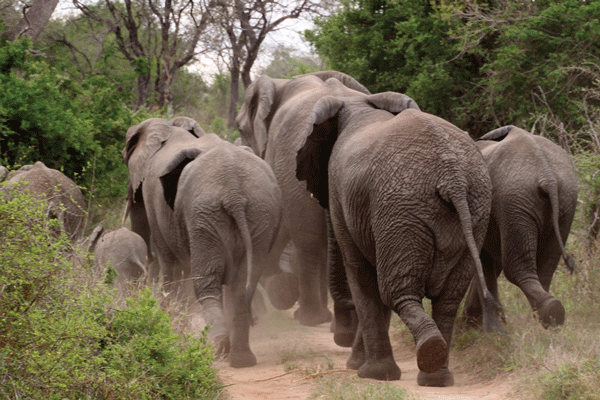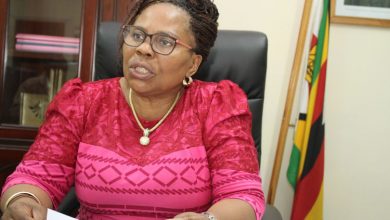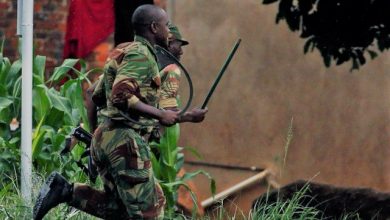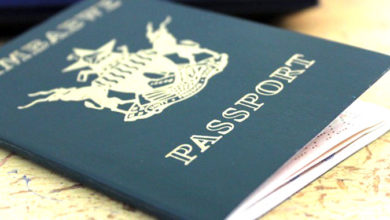‘Politics of conservation: from conservation to politics’

Leader of the United Zimbabwe Alliance (UZA), Elisabeth Valerio, says having run an active environmental campaign and engaging communities in the fight to preserve conservation spaces inspired her to enter politics because all these efforts were aimed at improving people’s lives.
Valerio, a biochemist by profession, said before entering politics, she became engaged in active environmentalism in Matabeleland North, where she was part of an active citizens group to protect conservation areas that were the foundation of communities’ livelihoods.
“I grew up in Hwange in Matabeleland North, lived there for almost a decade then went to primary school in Bulawayo. I was not in politics before. This is my first political path. I am a scientist educated in the United States. Though I was born here, I spent a few years as a biochemist and actually have a patent to my name,” she said.
“I have done a lot of work in scientific work, more recently, I have done a lot of work on ethnobotany – which is trying to understand how to use indigenous knowledge into medicinal products. I’m really interested in science, chemistry and human health, which are the spaces I was working on.”
Valerio narrated that before her mother died, she requested her to look after an elephant herd in Dete, which is on the outskirts of Hwange National Park.
“I said yes and will make sure the elephants are looked after. I didn’t know what I was agreeing to but when my mum passed away, my brothers reminded me about that promise. I actually left my career, not intentionally. At first, I thought I would go for a short time then put someone to look after the elephants then return to my life because I had quite a successful career already,” she said.
Valerio realised it would be a difficult transition when she arrived in Dete, where she now resides, because the location her mother mentioned was a concession on the outskirts of Hwange National Park.
“My mother owned land and prior to the liberation struggle, she had given safe space for the fighters to come together then she lost that piece of land because there were a lot of fallen heroes that were buried on that land. The government actually then gave her that piece of land,” Valerio said, adding that she spent almost a year establishing herself in that space.
“I was sleeping in my car because there was no infrastructure but today we are now in the safari industry. We have a successful safari that we have built. The place is called Gwango and is a well established tourism facility.”
In 2020, while ‘enjoying the fruits’ of hard work and spending time in Dete, Valerio said they received news that a coal mining operation would set up a base inside Hwange National Park.
“At that time, as safari operators we were looking for a successful safari season but all of a sudden we received this news, which was like a dark cloud over us. We ended up as a community, rallying together trying to find a solution,” she said.
Part of those efforts was appealing to the government to prevent Chinese coal miners from entering Hwange National Park.
“People were living on the ecosystem, their jobs were on the line and I had invested in a safari business, spent seven years of my life building it then to have people coming in to put coal mining inside a national park, didn’t make sense,” Valerio said, noting she and other community members did research on how to stop such.
Valerio claimed she even authored a letter to President Emmerson Mnangagwa about the matter.
“Fortunately, the Cabinet heard us as a community and reversed that,” she said, describing this incident as an eye-opener to the circumstances in Zimbabwe.
“A few weeks later, I was receiving phone calls from people in Dinde, saying, ‘they (Chinese miners) are here, telling us to move from our ancestral burial land.’ I received phone calls from people in Chiredzi saying the same thing is happening and this started happening all over the country.”
Valerio claimed she started spending 80 percent of her time fighting to protect the land in Zimbabwe from foreigners.
“I was running around trying to understand the laws, the basis and rights of local people. It was really infuriating to me because I couldn’t understand how this could happen. I remember receiving a phone call from some young brick makers working in Hwange who had some small space to make bricks and they were told to move yet it was a gainful employment opportunity for young Zimbabweans,” said the UZA leader.
“It actually became very concerning to me. I also had a lot of concern about the wildlife, water that was polluted and I started hearing about children being burnt in underground fires. There were so many issues.”
The UZA leader said she then called for a meeting in 2021, after several months of trying to find a solution to these issues.
“I called people I didn’t know and we were 30. All of us from different backgrounds but came together because we were concerned about what was happening in our country,” Valerio said.
“After two days of deliberation and trying to figure out a solution, I wanted to form a conservation pressure group but people said, ‘Elisabeth, you are worried about elephants and the land yet children are not going to school right now. Our hospitals have no medicines, nurses have left the country, roads are not in order, resources are not benefiting the people plus the pollution coming into Hwange,’ which we had already seen going into the sky.”
Valerio said there were many problems and the only way to fix those was by forming a new government.
“So on that day, May 29, 2021, we all came to a consensus and really decided that the only answer for Zimbabwe was to form a political party,” said the UZA leader.
“We had people from different backgrounds, who had been disappointed from Zanu PF, raising their fists as a symbol, others came from the opposition MDC, with an open palm so we said we are going to come together and end this – hence our party symbol of a palm over a fist. We said let’s unite and build Zimbabwe for a change.”
The UZA leader said every election cycle, citizens had been promised that Zimbabwe is going to change but that has not happened.
“We said, ‘we are going to be the first political party to come together and build Zimbabwe.’ Since that day in 2021, we have not stopped working. We have travelled across the entire country – have been to almost every constituency,” Valerio said.
“We started with a focus on what was really the core of our ideology and that was citizen engagement. That we meet people, see where they are, what they are going through,discuss what their solutions are. So we have literally spent an enormous amount of time everywhere constantly on the ground engaging citizens.”
Leader of the United Zimbabwe Alliance (UZA), Elisabeth Valerio, says having run an active environmental campaign and engaging communities in the fight to preserve conservation spaces inspired her to enter politics because all these efforts were aimed at improving people’s lives.






